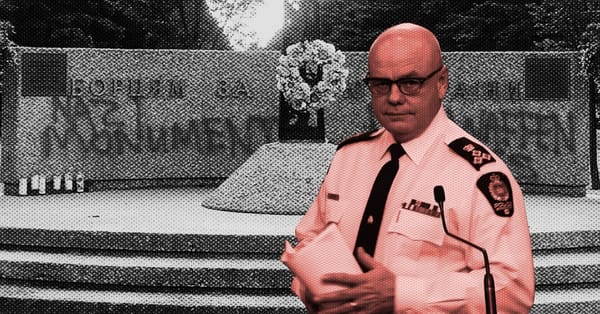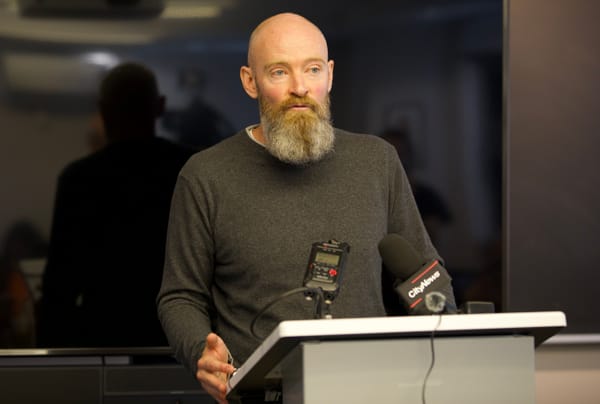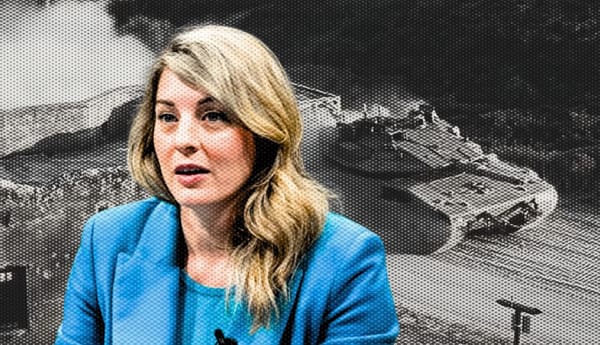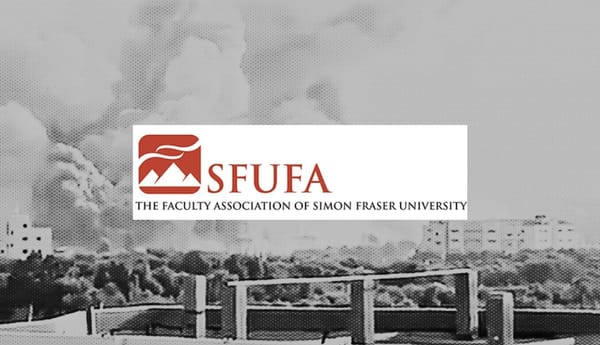Throughout July and August, many areas across the country lifted COVID-19 public health restrictions as vaccination rates increased. Mask mandates have been changed to recommendations, social gatherings are happening again and directional arrows in some stores are being removed.
But as COVID-19 cases rise again and the fourth wave is officially here, only some jurisdictions are bringing back restrictions. In B.C., a mask mandate was reintroduced only in the Central Okanagan, due to rising local cases. But as the rest of the province sees a spike, no extra restrictions have been brought back.
Kim Novak, president of UFCW 1518, a union which represents some front line workers in BC, told The Maple that while some workers are glad to not have to wear a mask at work all day, there are still some who feel less safe.
“There are still concerns for those that are working with the public,” said Novak. “Where people may not be keeping their distance, who aren't wearing a mask, there has definitely been discomfort.”
Novak also said that there have been instances where customers aren’t respecting the boundaries workers are setting.
“Unfortunately, there have been instances where customers are getting too close and are saying ‘Why are you still wearing a mask?’ ‘Why is that necessary?’ ‘You're being too sensitive,’” said Novak. “And unless you have worked the last year and a half on the frontlines of a pandemic, not knowing who's coming into your space and who's coming into your workplace every day, that level of anxiety is really hard to otherwise comprehend.”
When it comes to respecting workers, Novak said that customers need to be mindful of keeping their distance from workers, even if they’re fully vaccinated.
“You know you have been [vaccinated], but the workers you're interacting with don't,” Novak explained. “And so that anxiety and concern that they have is very valid. And as a result, we need to be very mindful and respectful of that when we're grocery shopping.”
Andrew Longhurst, a health policy research associate with the Canadian Centre for Policy Alternatives, told The Maple that he feels it’s unfortunate that mask mandates are ending in so many places.
“[A mask mandate] is something that does protect workers and workplaces, when customers or others are coming into contact, unmasked and even vaccinated. Because you can still transmit COVID-19 even if you've been fully vaccinated,” said Longhurst.
Longhurst also noted that this creates risks for workers, “because we know that SARS-CoV-2 is an airborne virus.”
Focus on vaccines
BC’s Restart plan states that the province’s Get Vaccinated program is the most important tool for moving forward in the pandemic. But Longhurst thinks it's a mistake to assume that vaccination is all that’s required.
“I think one of the unfortunate things that we're seeing is, there's this dominant view among some provincial public health authorities, and fairly widespread across Canada, with some exceptions, that we can get out of the fourth wave just through vaccination,” said Longhurst. “And it's pretty clear that that's not possible. And that's not been possible in other jurisdictions with quite high levels of vaccinated immunity.”
Longhurst believes that public health authorities should be making use of all available measures to stop the spread of COVID-19.
“I think that's abundantly clear now that we need both high levels of vaccination, and we need [non-pharmaceutical interventions] and public health interventions like mandatory indoor masking, ventilation, improvements in indoor shared spaces and higher risk congregate settings like schools and education facilities, as well as physical distancing,” said Longhurst. “Why would we not use all of the tools in our toolkit?”
Sick pay
Pamela Charron, community engagement coordinator at the Worker Solidarity Network, said a major issue that was further highlighted during the pandemic was sick pay.
“[Workers] currently have three paid sick days under the Employment Standards Act, but beyond that, if they're sick for longer than three days, they're going to lose pay. And that's a big fear for workers at this time,” Charron told The Maple.
Paid leave in B.C. was only introduced in May 2021, 14 months into the pandemic.
“Before May, workers had no paid sick days under the Employment Standards Act that protected them from taking a day off without losing their job and also without losing pay,” said Charron.
While B.C. added the COVID-19-related paid leave section to the Employment Standards Act on May 20, 2021, the section is set to be repealed on December 31, 2021 and replaced with a permanent provision next year.
Apart from this provincial paid leave, the federal government implemented the Canada Recovery Sickness Benefit (CRSB), which provides $500 for a one-week period to Canadians who are sick or need to self-isolate due to COVID-19. This means that in this period, an eligible person would be paid approximately the amount a B.C. worker would make working a 33-hour week on minimum wage.
Paid sick leave is not a new concern, according to Charron.
“We've been campaigning for paid sick days ... before the pandemic. And one thing that could have supported workers and could have prevented a lot of outbreaks in frontline workplaces is providing workers with paid sick days,” said Charron.
And when it comes to the fear of exposure to COVID-19 in the workplace, Charron said that workers fear for their jobs when they complain about unsafe conditions.
“Right now, workers are scared to tell their employers they feel unsafe, or workers are scared to call in sick or not to work in fear of repercussions, of losing their employment. Because currently in British Columbia, any employee could be terminated without just cause as long as they're compensated accordingly,” said Charron.
The collective good
Ultimately, what Longhurst sees as integral to preventing the spread of COVID-19 is understanding that public health interventions are only achievable through collective work.
“That's really at the core of what public health is: responding to disease through interventions, and using public policy as the lever to reduce transmission and prevent transmission in the first place, and preventing disease, and morbidity and mortality,” said Longhurst.
“I think it's quite upsetting, and really concerning to see that there is quite a common refrain ... that masking is a personal choice, or that some people may choose to continue masking because they're more risk averse … really, the soul of public health is about collective public health interventions at a population level, as opposed to an individual level, because at an individual level, they're much, much less effective,” he said.
Novak said that public health recommendations are still important to listen to, as well as mandates, for the safety of individuals and the workers they interact with.
“If you see a recommendation on a store, [on a] sign, or if you hear one when you're watching those press conferences, make sure you're following those for the safety of every person that you're interacting with, including yourself,” she said.
Sam Smart is a Vancouver-based freelance journalist. She has a degree in English literature from UBC, where she served as blog and opinion editor at The Ubyssey. Follow her on Twitter @uglyblender.
Editor's note, August 20, 2021: This story was published at 12:37 pm PST. At 2:37 pm PST, the BC government announced that health restrictions -- including a mask mandate, limits on indoor social gatherings to no more than five people and a ban on high-intensity fitness classes -- are being re-introduced in the Interior Health region only. For more information on health restrictions, see the BC Health Ministry website.








Member discussion